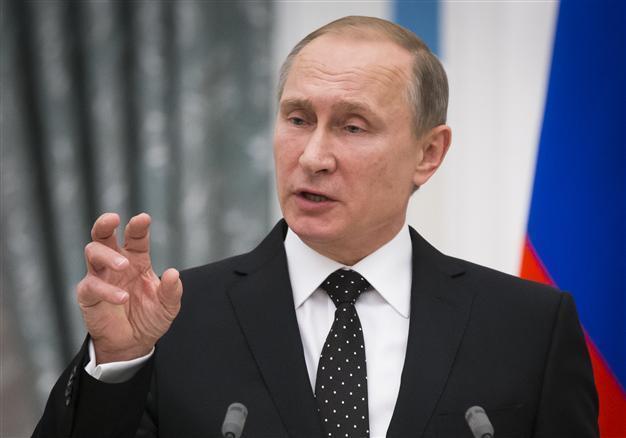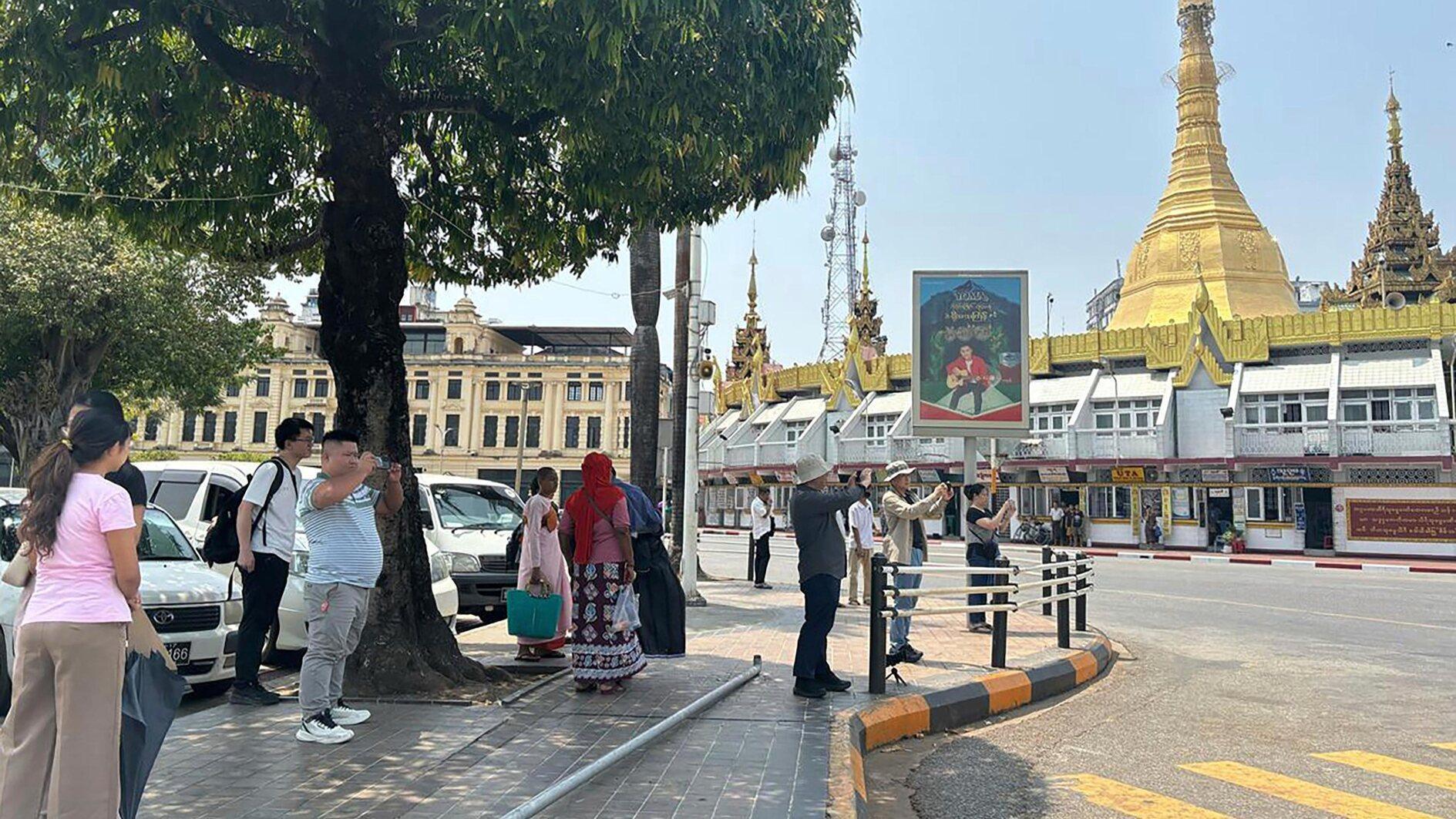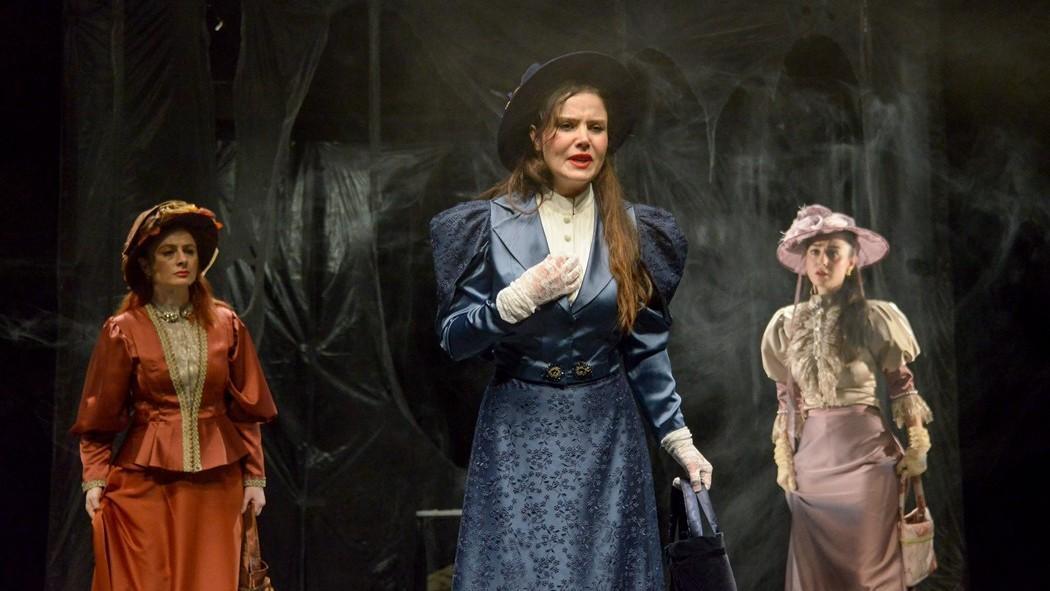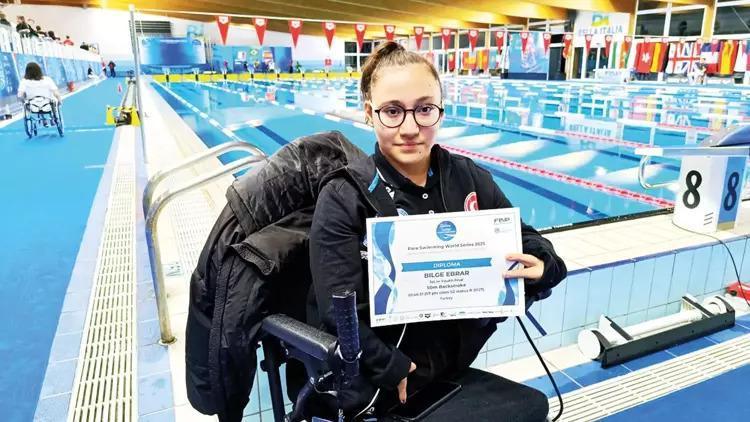Russia announces sharp sanction on Turkey after jet row
MOSCOW

AP photo
Russian President Vladimir Putin approved a document Nov. 28 slapping sharp economic sanctions on Turkey that include banning Turkish employment in the country following Ankara’s downing of a Russian jet, according to the Kremlin press service.
The Kremlin released the text of a decree that announced an end to charter flights between the two countries, a ban on Russian businesses hiring any new Turkish nationals and import restrictions on certain Turkish goods.
It also asked Russian tour operators to refrain from selling trips to Turkey, normally a top holiday destination for Russian tourists.
The visa-free regime between the countries will also be partially suspended. However, “the measure does not concern Turkish nationals who have a temporary or permanent resident permit, as well as Turkish staff of diplomatic or consular missions in Russia and their families,” Sputnik said.
In addition, the activities of Turkish organizations in Russia will also be restricted, the Kremlin said.
The new measures will come into effect on Jan. 1, 2016. The list of Turkish goods subject to “bans or limitations” has not yet been made public.
The Kremlin’s announcement came just hours after Turkish President Recep Tayyip Erdoğan said he wished the Nov. 24 incident had never happened.
Turkey says the Su-24 warplane strayed into its airspace and ignored repeated warnings to change course.
The incident is thought to be the first downing of a Russian plane by a NATO member in more than half a century.
“I’m really saddened,” Erdoğan said. “We wish it had never happened, but it happened. I hope something like this doesn’t happen again.”
He also renewed a call to Putin for a face-to-face meeting in Paris on the sidelines of a U.N. climate summit on Nov. 30.
But the Turkish leader stopped short of apologizing for the incident, as a furious Putin had earlier demanded.
A day earlier the Turkish leader had struck a more combative tone, warning Moscow not to “play with fire” as Russia announced it was halting visa-free travel for Turkish visitors, also from Jan. 1.
Turkey’s Foreign Ministry on Nov. 27 warned its citizens against non-essential travel to Russia “until the situation becomes clear.”
The two countries have established significant trade ties in recent years and Russia is already energy-poor Turkey’s biggest oil and gas supplier.
Sanctions like those Russia imposed on Turkey only serve to deepen the problem between them, Reuters quoted a senior Turkish official as saying on Nov. 28 after Putin ordered further economic retaliation.
“Sanctions like this would only damage relations. These steps do not make anything easier, but deepen the problem,” the official said.
















